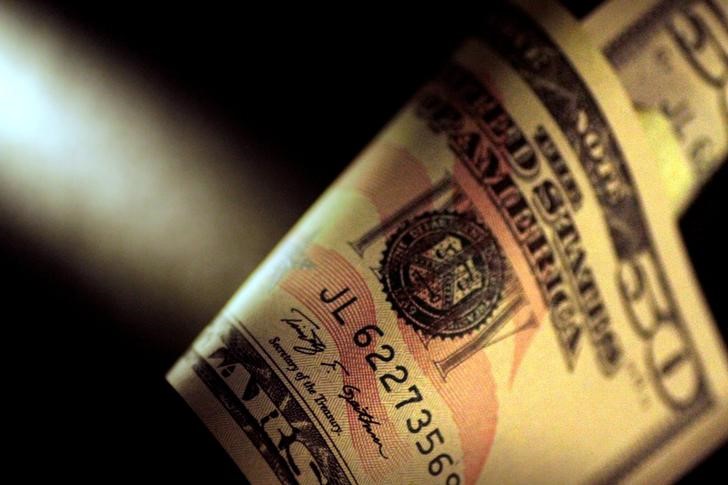Asia FX muted amid debt ceiling woes, dollar dips after Powell comments
2023.05.22 02:03

© Reuters.
Investing.com — Most Asian currencies struggled for direction on Monday as markets awaited more cues on raising the U.S. debt ceiling, while the dollar retreated as Federal Reserve Chair Jerome Powell presented a less hawkish outlook than expected.
Regional currencies saw some relief after Powell said on Friday that tightening credit conditions in the U.S. meant that the Fed might not need to raise interest rates too much. This triggered steep losses in the dollar, which extended into Asian trade on Monday.
The and both fell about 0.2% each, amid growing bets that the Fed will pause its rate hike cycle in June. point to a nearly 83% chance for a June pause.
But Asian currencies took little support from a weaker dollar, as sentiment remained on edge amid fears of a U.S. debt default. President Joe Biden is set to continue talks with Republican lawmakers this week over raising the debt ceiling.
The was the worst performer for the day, down 0.2% and sinking back towards a near six-month low. The currency took little support from Biden flagging a potential improvement in Sino-U.S. relations, as well as a stronger daily midpoint fix by the People’s Bank of China.
The PBOC held its benchmark at historic lows on Monday. But a swathe of weak economic data for April spurred bets that the PBOC could cut rates as soon as June.
This posted a weak outlook for the yuan, which is already under pressure from a growing rift between local and U.S. interest rates. The yuan’s breaching of the psychologically important 7 level last week is expected to invite more losses in the currency.
Broader Asian currencies were a mixed bag. The rate-sensitive added 0.6%, benefiting from a less hawkish outlook on the Fed, while the rose 0.1%.
The rose 0.2%, also benefiting from the prospect of a pause in U.S. interest rate hikes. But the currency had marked steep losses over the past two weeks as the Bank of Japan signaled that its ultra-dovish monetary policy will not change in the near-term.
Economic readings continued to paint a weak picture of the Japanese economy, with data on Monday showing an unexpected drop in through April.
The fell 0.2%, hit by uncertainty over the formation of a new government after the pro-Democratic opposition defeated the military-backed junta in an election last week.







